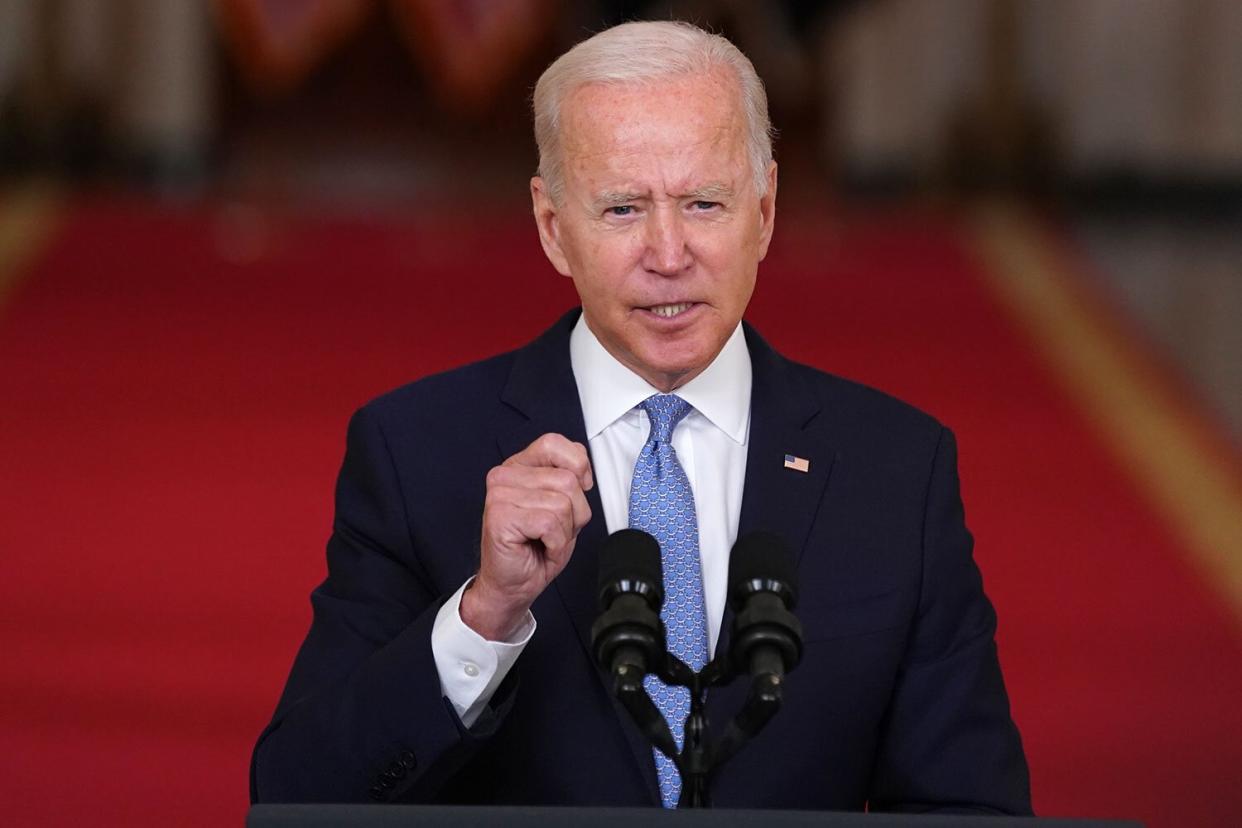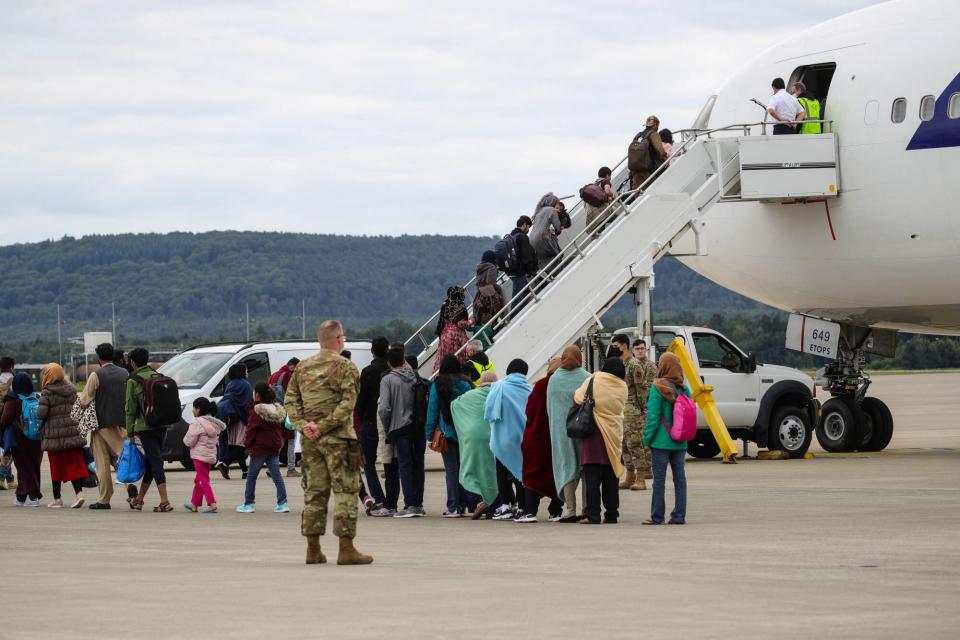Interpreter Who Helped Rescue Biden in 2008 Pleads for Help Leaving Afghanistan: 'Don't Forget Me'

- Oops!Something went wrong.Please try again later.
Stefani Reynolds/Bloomberg via Getty Joe Biden
An Afghan interpreter who helped rescue Joe Biden during his time as a senator some 13 years ago is asking the now-president for help getting away from the new Taliban regime.
Speaking to The Wall Street Journal in an article published Tuesday, right after the U.S. completed its withdrawal from Afghanistan, the man known as Mohammed spoke directly to the president: "Save me and my family. Don't forget me here."
As the Journal and CNN reported, Mohammed helped then-Sen. Biden and two other lawmakers (John Kerry and Chuck Hagel) during a 2008 trip to Afghanistan when they were stranded in a remote valley after their helicopter made a forced landing amid a snowstorm.
Mohammed, who was a 36-year-old interpreter for the U.S. Army at the time, joined the Army and Blackwater contractors in Humvees that drove hours through the snow to find the helicopters carrying the senators.
The incident has been referred to by Biden while on the campaign trail, such as a 2008 appearance in which he said: "If you want to know where al-Qaida lives, you want to know where bin Laden is, come back to Afghanistan with me. Come back to the area where my helicopter was forced down, with a three-star general and three senators at 10,500 feet in the middle of those mountains. I can tell you where they are."
Mohammed applied for a Special Immigrant Visa, which would allow him to enter the U.S., and which was supported by Lt. Col. Andrew R. Till, who wrote in support of the application, per the Journal: "His selfless service to our military men and women is just the kind of service I wish more Americans displayed."
The visa application was ultimately stuck due to lost paperwork and Mohammed, in an effort to speak directly to members of the military, attempted to enter the Kabul airport earlier in August.
While he was told he could enter to board a flight out, his wife and children would not have been allowed.
RELATED: The Afghanistan War Ends: Last U.S. Plane Leaves After 20 Years — and Evacuation of 120,000
Now Mohammed tells the Journal that he, his wife, and his four kids are in hiding from the Taliban since they have returned to power. The group has an infamous history of punishing Afghans who worked with the U.S. government.
White House Press Secretary Jen Psaki on Tuesday promised that the U.S. would assist Mohammed in getting out of Afghanistan, saying in a briefing that the administration was thankful for his service.
"First, our message to him is thank you for fighting by our side for the last 20 years," Psaki said. "Thank you for the role you played in helping a number of my favorite people out of a snowstorm and for all of the work you did."
She continued: "We will get you out. We will honor your service."
As the U.S. finalized its withdrawal from the Afghan capital of Kabul on Monday night, ending a 20-year war, a question remained about those still in the country, including Afghans who have previously assisted America.

ARMANDO BABANI/AFP via Getty
"While the military evacuation is complete, the diplomatic mission to ensure additional U.S. citizens and eligible Afghans who want to leave continues," Gen. Frank McKenzie said Monday, in announcing the completion of the exit.
He said that the operation had entered a "diplomatic sequel" phase, in which the Department of State will work to get out both remaining Americans and any remaining eligible Afghans (such as interpreters who previously worked with the U.S. military).
The historically large airlift operation to evacuate Americans and Afghan refugees in recent weeks helped 122,000 people leave the country, the Pentagon said.
As McKenzie detailed on Monday, the U.S. military has evacuated more than 79,000 civilians from Kabul's Hamid Karzai International Airport since Aug. 14, just before the Afghan government fell to the Taliban.
"That includes 6,000 Americans and more than 73,500 third-country nationals and Afghan civilians," McKenzie said. "This last category includes special immigrant visas, consular staff, at-risk Afghans and their families."
The historic evacuation effort was not without criticism, however, from those who argue it left behind too many vulnerable Afghans and that it was poorly planned.
While the Taliban has promised it would not rule as harshly as it has in years past, some of those who remain in the country have shared their worries about life following the U.S. exit.
As Mohammed told the Journal, his entire family is in hiding for fear. "I can't leave my house," he said. "I'm very scared."
If you would like to support those in need during the upheaval in Afghanistan, consider:
* Donating to UNICEF to aid Afghans in the country or
* Donating to the International Refugee Assistance Project to help those fleeing.

